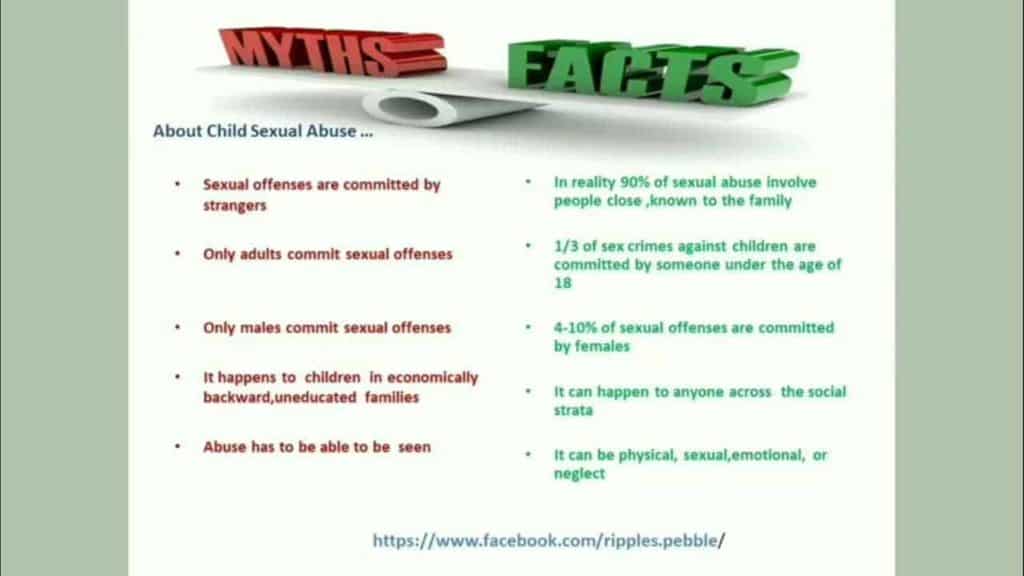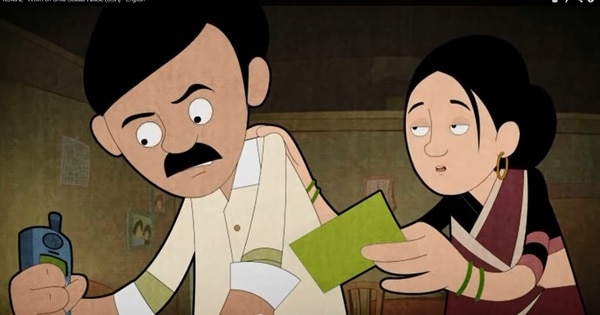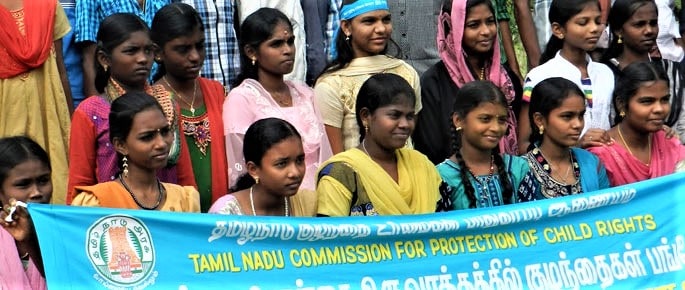The recent exposé in the social media on sexual harassment of students by some school teachers in Chennai has shocked the city. But while there is outrage across the city, and rightfully so, there is perhaps not enough awareness about how to prevent or even seek redress against crimes of child sexual abuse. In the backdrop of the incidents that have come to light recently, it becomes even more important for parents, teachers, caregivers and society as a whole to know more about the legislations, law & order framework as well as institutions that work for protection of children.
Here is a detailed overview of the relevant laws, institutions and helplines that deal with child rights and child protection.
Child Sexual Abuse
The World Health Organisation has defined child sexual abuse, or CSA, as the involvement of a child in sexual activity as he or she does not fully comprehend, is unable to give informed consent to, or for which the child is not developmentally prepared and cannot give consent, or that violates the laws or social taboos of society. It includes different sexual activities like fondling, inviting a child to touch or be touched sexually, intercourse, exhibitionism, involving a child in prostitution or pornography, or online child luring by cyber-predators.
Read more: Project Masoom: Creating awareness about child sexual abuse
The Protection of Children from Sexual Offences Act, 2012
The Protection of Children from Sexual Offences (POCSO) Act, 2012 provides a legal framework for protection of children from offences of sexual assault, sexual harassment and pornography, while safeguarding the interest of the child at every stage of the judicial process.
With a focus on a child friendly approach, the Act includes mechanisms for child-friendly reporting, recording of evidence, investigation and speedy trial of offences through designated Special Courts.
According to the POCSO Act, anyone below the age of 18 years is a child and the act is gender neutral. Under it, child sexual abuse includes not only penetrative assault but also visual, verbal and physical sexual abuse. This Act provides for a variety of offences under which an accused can be punished. The Act criminalises not just child porn but also watching, collecting pornographic content involving children and makes abetment of child sexual abuse an offence.
The law provides for relief and rehabilitation of the child, as soon as the complaint is made to the Special Juvenile Police Unit (SJPU) or to the local police. These agencies are required to make immediate arrangements to give the child adequate care and protection such as admitting the child into a shelter home or to the nearest hospital within twenty-four hours of the report.
The Child Welfare Committee (CWC) is also required to be notified within 24 hours of recording the complaint. Section 44 of the POCSO Act, confers the power to monitor its implementation on the state commission for protection of child rights. It also stipulates that the central and state government should spread awareness about the Act through the media.
Read more: How should a case of child abuse be dealt with under POCSO?
The Juvenile Justice (Care and Protection of Children) Act, 2015 and Child Welfare Committees
The Juvenile Justice (Care and Protection of Children) Act, 2015 mandates the constitution of Child Welfare Committee in every district, comprised of a Chairperson and four members to take cognizance of the children produced before it, conduct inquiry on all issues relating to the safety and well-being of the children and direct the Child Welfare Officers, District Child Protection Unit or NGOs to conduct social investigations and submit a report before the committee.
A sexually abused child is considered as “child in need of care and protection” under Juvenile Justice (Care and Protection of Children) Act, 2015. A police officer should therefore inform the Child Welfare Committee about every case under the Act within 24 hours. The CWC can appoint a support person for the child who will be responsible for the psycho-social well-being of the child. This support person will also liaise with the police, and keep the child and child’s family informed about progress in the case. Reporting can be done through the toll free number 1098.
When a child is rescued from child marriage, a crime under POCSO or child labour, it is mandatory for the police to report to the CWC. The committee will see the child and do what is in the best interest of the child. If the child is not safe at home, CWC will issue an order to place the child in a government home. If the child is comfortable with the mother, CWC will take action to ensure the safety of the mother and the child.
In all cases such as a child that needs care and protection, or a child in conflict with the law or a victim of child labour, CWC will be involved.
Section 75 in Chapter IX of the Juvenile Justice ( Care and Protection of Children) Act, 2015 also says:
‘Whoever, having the actual charge of, or control over, a child, assaults, abandons, abuses, exposes or wilfully neglects the child or causes or procures the child to be assaulted, abandoned, abused, exposed or neglected in a manner likely to cause such child unnecessary mental or physical suffering, shall be punishable with imprisonment for a term which may extend to three years or with fine of one lakh rupees or with both…
…If the child is physically incapacitated or develops a mental illness on account of cruelty or is rendered mentally unfit to perform regular tasks or has risk to life or limb, such person shall be punishable with rigorous imprisonment, not less than three years but which may be extended up to ten years and shall also be liable to fine of five lakhs rupees.’
Extended responsibility
Swapna Sundar, CEO, IP DOME, Member-Legal, Institutional Human Ethics Committee, NIE – ICMR points out that the Juvenile Justice Act casts absolute responsibility on any persons, school and institution in proximate charge of the child not merely to protect children from any form of abuse, harassment, cruelty, bullying or neglect but to prevent exposure of the child to such situations.
“Failure to do this has criminal consequences,” she says. Under the ambit of this law, schools cannot escape from accountability in instances of child abuse, even if online. Under this act, if a child is subject to any form of abuse during proximate charge, the parent or guardian or a trusted significant other needs to go to the police station for complaint. The police will then take it up under the Criminal Procedure Code.
Swapna Sundar strongly advocates steps to increase awareness among parents, guardians, schools and teachers about this law and various aspects of child protection. In cases of sexual assault on a child, pieces of evidence are lost because parents or caregivers are not aware that it is important for a medical examination to be conducted immediately, or because biological materials that could be a strong evidence are lost due to time lapse or any effort on their part to return the child to normal activities. Loss of evidence is the main reason why many culprits go scot-free.
Law & Order Police
Sec 107. 1 of the Juvenile Justice (Care and Protection of Children) Act, 2015 provides for at least one officer in every police station, not below the rank of assistant sub-inspector, who has the aptitude and is trained to handle children to be designated as the child welfare police officer to exclusively deal with children either as victims or perpetrators, in co-ordination with the police, voluntary and non-governmental organisations.
This act also mandates the state government to constitute Special Juvenile Police Units in each district and city, headed by a police officer not below the rank of a Deputy Superintendent of Police, two social workers with experience in child welfare of whom one will be a woman. The Act also requires the central government and every state government to take measures to ensure that the provisions of this Act are given wide publicity through the media to make the general public, children and their parents or guardians aware of such provisions.
For Chennaiites, complaints of sexual abuse and harassment of children in schools can be made to the Deputy Commissioner, Crime Against Women and children (CAWC) at +91 94447 72222. The identities of the informants and victims would be kept anonymous.
Some police stations like Adyar and Pulianthope have given children post cards with the address to complain about sexual abuse and drop in any post box or in the complaint box in school. The Adyar District Police launched a new initiative earlier in January 2021, distributing self-addressed postcards carrying the address of the office of the Deputy Commissioner of Police, Adyar, so that children can write and send them to the police in case they face abuse or harassment. They distribute the post cards to children during regular foot patrolling during evening hours.
A similar initiative had been introduced as early as 2013 in Pulianthope district, where child abuse victims were asked to drop in their complaints in a box set up at schools. Police had received an overwhelming response to the initiative. The school, parents or the police themselves can continue these efforts with a focus on creating greater awareness among school children.
For complaints to the police station, people can send mails to the police station in their jurisdiction. Parents can also visit the government website and send mails to the officers in their respective jurisdiction making a complaint.
TN Commission for Protection of Child Rights (TNCPCR)
Set up in 2013, TNCPCR is the monitoring authority for crimes related to Protection of Children from Sexual Offences ( POCSO) Act, 2012, the Rights of Children to Free and Compulsory Education (RTE) Act, 2009 and the Juvenile Justice (Care and Protection) (JJ) Act, 2015.
TNCPCR works in convergence with other teams such as Child Welfare Committee, Juvenile Justice Board, District Child Protection Unit, Anti Human Trafficking Unit and Childline. It is the duty of the Commission to examine and review the safeguards provided in any law in force for protection of child rights and ensure effective implementation, inquire into violation of child rights and recommend initiation of proceedings in such cases.
Usually TNCPCR receives direct complaints through mails or calls. It can also inquire into complaints and take suo motu notice of matters relating to deprivation and violation of child rights and non-implementation of laws providing for protection and development of children. On receipt of a complaint, they inquire to find out the truth, if necessary interview the victim and may also visit the place where the incident took place. It is TNCPCR’s responsibility to ensure that the police take appropriate action and their intervention extents till the matter reaches the court.
First steps to be taken in incidences of Child Sexual Abuse/Harassment
- First point of contact for a child is a trusted adult- a parent, class / favourite teacher
- Teacher must report the incident to principal/ school authorities
- School authorities + school counsellor + lawyer should talk to the child in the presence of the parent and take down exact words of the child
- School authorities must make a complaint to the police station in their jurisdiction
- If school authorities do not take action, the trusted adult can directly approach the police station in their jurisdiction or contact an NGO, CWC or call CHILDLINE 1098
- The child can also directly call CHILDLINE 1098 or send a postcard to the police station in their jurisdiction
- Police will have to intimate Child Welfare Committee within 24 hours
- CWC can appoint a support person for the child who will liaise with the police
- CWC will conduct inquiry and direct Child Welfare Officers, District Child Protection Unit or an NGO to conduct investigations and submit a report
- The police after investigation will file a charge sheet and matter will be taken to the court
- At no point must the child be exposed to anyone dealing with the case without the child support person, parent or trusted adult


